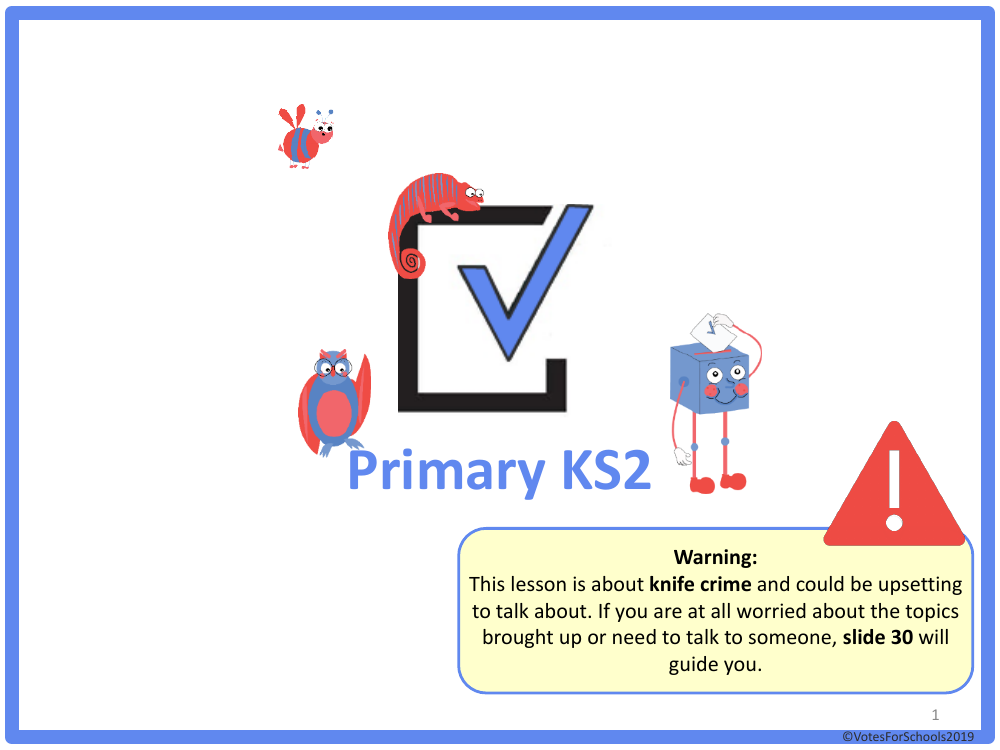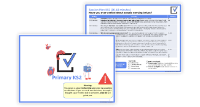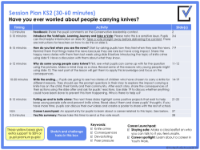Knife Crime Presentation Lesson

English Resource Description
A sensitive and thought-provoking lesson plan has been developed to address the issue of knife crime with Primary KS2 students. The lesson begins with a warning about the potentially upsetting content and offers guidance on slide 30 for those who may need support. The lesson aims to engage students in a discussion about knife crime and its impact on individuals and communities. The initial activity is a vote on whether the students have ever worried about people carrying knives, prompting them to consider their own feelings and experiences related to the topic. This is followed by a series of activities designed to explore the reasons why some young people might carry knives, such as peer pressure, a desire for protection, or to feel part of a group. The consequences of carrying a knife, regardless of the intent, are also examined, highlighting the devastating effects on the individual, their family, and the wider community.
Throughout the lesson, students are presented with real-life scenarios, such as the stories of Joe and Rachel, to help them understand the potential outcomes of carrying a knife. These narratives are used to facilitate group discussions and encourage students to predict the consequences of the characters' actions. The lesson also covers positive community initiatives aimed at preventing knife crime, such as special police units, awareness campaigns, and mentoring programs. Students are encouraged to reflect on these approaches and to think creatively about other solutions that could help deter young people from carrying knives. The lesson concludes with a focus on staying safe and knowing who to turn to for help, including creating a leaflet with useful contacts and resources. The lesson is framed as a learning journey, guiding students through the complex issue of knife crime and empowering them with knowledge and strategies to make positive choices.


